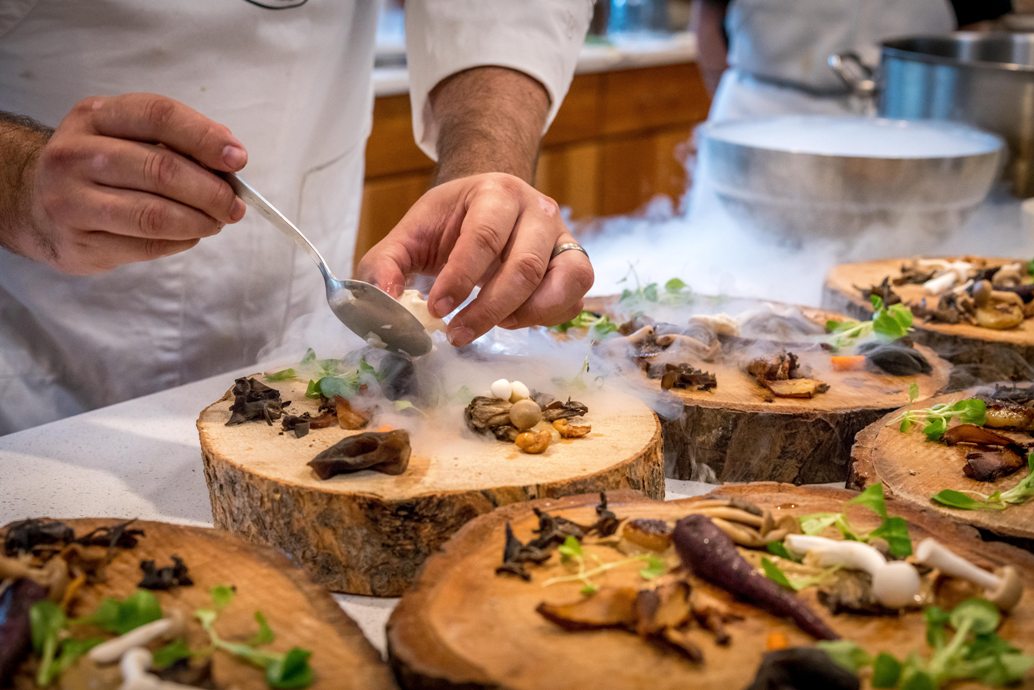Online marketing is a vital component of a restaurant’s success, providing a range of strategies to improve accessibility and draw in prospective patrons in restaurant industry.
What Is Digital Marketing?
Digital marketing involves harnessing online platforms to promote products or services, encompassing a wide array of activities, including email campaigns, outreach on social media, search engine optimization (SEO), and more.
The goal of digital marketing is to expand outreach beyond conventional channels by connecting with potential customers in their online hangouts. Within the restaurant sector, this means building a strong presence on popular review and reservation platforms and staying active on social media.
Although digital marketing can significantly widen your customer base and boost business growth, it’s essential to view it as just one element of a comprehensive strategy. A successful restaurant marketing approach should encompass traditional elements such as print ads, public relations, and event coordination.
The Role Of Digital Marketing In The Restaurant Industry
Digital marketing is a crucial tool for restaurants to engage with new customers and foster business growth. It should undoubtedly be a central element in every restaurant’s marketing strategy. This article delves into the importance of digital marketing in the restaurant industry and offers guidance on maximizing its influence on your business.
In the highly competitive restaurant industry, setting yourself apart is becoming more and more difficult. This is precisely where digital marketing assumes a crucial role. It empowers you to extend your influence, reaching a wider audience of prospective customers and boosting your restaurant’s visibility among those who might otherwise not be aware of your culinary offerings.
Among the numerous digital marketing strategies available for restaurant promotion, one highly potent method is search engine optimization (SEO). SEO revolves around enhancing your website’s presence on search engine results pages (SERPs), ensuring it achieves a high ranking. When people search for keywords related to your restaurant, a robust SEO strategy enhances the probability that your website will be among the top results they come across.
Leveraging social media presents another excellent method to harness digital marketing for promoting your restaurant. Platforms like Facebook, Twitter, and Instagram provide fantastic channels for connecting with potential patrons and nurturing relationships. Social media allows you to share restaurant photos, details, special promotions, events, and much more, thereby strengthening your online presence and engaging with customers.
Pros and Cons of Digital Marketing in the Restaurant Industry
Digital marketing has revolutionized the restaurant industry, offering new pathways for businesses to engage with their target audiences. However, like any emerging technology, there are both advantages and drawbacks to consider before embarking on a digital marketing strategy.
Certainly, digital marketing offers impressive effectiveness and efficiency. It enables businesses to precisely target specific demographics, providing a cost-effective way to reach a broad audience. Furthermore, digital marketing is highly adaptable, giving businesses the flexibility to tailor their campaigns precisely to suit their unique needs and goals.
On the flip side, digital marketing can present challenges for businesses not well-versed in its intricacies, possibly becoming daunting and requiring significant time investment. A thorough understanding of the target audience and the establishment of achievable campaign objectives are crucial prerequisites for launching any campaign. Lastly, while digital marketing is undoubtedly effective, it should complement a more comprehensive marketing strategy that includes traditional channels such as print, television, and radio.
Types of Digital Marketing Strategies
Digital marketing encompasses a wide range of methods utilized to promote products or services using digital technologies, including the internet, email, social media, and mobile applications. Furthermore, it signifies how businesses utilize technology to deliver value to their customers.
Although the restaurant industry has been somewhat hesitant in embracing digital marketing strategies, there are various opportunities for restaurants to utilize digital marketing to engage with new customers and grow their businesses.
An effective approach involves the use of search engine optimization (SEO). Restaurants can boost their search engine rankings by incorporating keywords and employing various tactics, thereby increasing the chances of potential diners finding them when searching for dining options.
Another practical digital marketing strategy for restaurants is email marketing. This method involves sending promotional or informative emails to both current customers and prospective patrons. Email marketing serves as a valuable tool for promoting special offers, introducing new menu items, and sharing restaurant updates.
Social media emerges as a pivotal platform for restaurant marketers, offering opportunities to nurture customer relationships, showcase menu items through visual content, and spotlight special promotions. Prominent social media platforms for restaurants encompass Facebook, Twitter, Instagram, and Snapchat.
Furthermore, mobile apps serve as a valuable digital marketing resource for restaurants. These applications provide a convenient platform for customers to make food orders, explore menus, and make reservations. They can also integrate loyalty programs and send push notifications with exclusive offers.
Social Media as a Marketing Tool in the Restaurant Industry
Amid the increasing competitiveness in the restaurant industry, restaurateurs are actively exploring ways to set themselves apart. Leveraging the potential of social media as a marketing tool is one effective strategy to accomplish this.
Social media platforms like Facebook, Twitter, and Instagram offer a unique channel for engaging with both prospective and current customers. By crafting compelling content and executing precise, targeted campaigns, restaurants can use social media to broaden their influence, nurturing brand recognition.
Beyond promoting the restaurant, social media serves as a conduit to drive traffic to your website or blog, promote special offers and events, and gather valuable customer feedback. When used adeptly, social media becomes a potent tool for expanding your business.
Why You Should Use Digital Marketing Tools For Your Restaurant
Digital marketing is an incredibly efficient and effective method for reaching your intended audience. It allows you to actively connect with potential customers who are actively seeking the products or services you offer, all without the necessity of significant advertising costs.
There are a number of digital marketing tools that can be used to promote your restaurant, including:
- Search engine optimization (SEO): This approach involves improving your website’s position in search engine results pages (SERPs), thereby boosting its visibility to prospective customers.
- Social media marketing: This tactic involves using platforms such as Facebook, Twitter, and Instagram to market your business. By sharing restaurant photos and updates, interacting with customers, and nurturing a devoted following, you can successfully establish your brand’s presence.
- Email marketing: This involves dispatching emails to your subscribers containing restaurant updates, exclusive offers, and promotional materials.
- Pay-per-click (PPC) advertising: This online advertising approach entails paying for each click on your ad. It serves as an effective way to increase website traffic and generate leads for your business.
- Content marketing: This approach focuses on creating and sharing top-notch content, such as blog posts, infographics, videos, and more, with the aim of marketing your restaurant and attracting new customers.
Digital marketing is an essential part of any restaurant’s marketing strategy. By using these tools, you can reach more potential customers.
Conclusion
The restaurant industry is experiencing a rising importance of digital marketing. With a growing number of consumers using the internet for restaurant-related research and reservations, establishing a strong online presence has become essential for eateries. Through the adoption of digital marketing, restaurants can extend their reach, improve brand visibility, and direct traffic to their websites or apps. Among the array of digital marketing strategies, some of the most effective ones for restaurants include search engine optimization (SEO), social media marketing, and email marketing.




